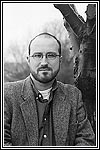 |
Vol 0, No 15 4 January 1999 |
| |
 C Z E C H R E P U B L I C :
C Z E C H R E P U B L I C :
Go to the Museum Andrew Stroehlein Dual pricing in the Czech Republic - charging foreigners more than citizens for museum tickets, restaurant meals and hotel rooms - is not as wide spread as it once was, but still the problem continues in certain locations. When this article appeared in Czech in Britske listy recently, it produced a wave of attacks from people who defended dual pricing on both economic and moral grounds. Few critics seemed to notice, however, that most Czech establishments charge the same price for all customers - that is normal, after all. (cesky preklad v Britskych listech) A new museum has just opened in Washington, DC, and I'd like you all to come with me and have a look at it. Of course, you'll have to pay twice as much as I do to get in, but I'm sure you won't mind. What's that? You don't see why you should pay more? Well, the reason is obvious. You see, you are a foreigner, so you must pay more. It's all perfectly logical. Logical anyway to the con-artists who have just opened the new Mucha Museum in Prague. The Museum, which opened about a year ago, charges an entry fee of 50 Kc for "nasince" and 120Kc for the rest of the human race (vasince?). Charging foreigners more is unfair pricing, and it is wrong. Of course, the Mucha Museum is not the only offender. Take a look around, and you'll find that this phenomenon is very common in the Czech Republic. Some of the other cases are equally unbelievable. I have seen concerts in Prague advertised in several languages on one flyer. In all languages except for Czech, "250 Kc" is clearly printed. In the Czech text, the WORDS "tricet korun" are spelt out. I have seen restaurant menus in German and Czech where a beer is advertised at "60 Kc" on the German side and "patnact" on the Czech. The trick of using Czech language to hide their underhanded intentions is simply shameful. Most hotels also have a dual price structure. (If you are bilingual and bored in Prague, standing at the entrance to these places and telling foreigners they are getting ripped-off is quite good fun.) Another offender is the Jewish Museum in Josefov. Here, foreigners are told in several languages to pay "350 Kc" while the Czech sign says "padesat". A foreigner pays seven times as much for the same exhibition. I might add that in this case, such a sum for a museum is rather high even in Britain and America when converted to pounds and dollars. Some justify this stupidity by saying that all foreigners are rich anyway so it doesn't really matter to them. The reality is that ALL foreigners must pay more no matter where they are from. Even visitors from poorer countries must pay more at hotels, restaurants and exhibitions across the Czech Republic. Theoretically, the Bangladeshi beggar must pay twice as much as or more than the rich Prague businessman who just tunneled out his latest catch. It is thus clear that the reason for price differentials has nothing to do with relative wealth of nations. The fact is that given the language barrier, it is all too easy to gouge people who do not understand Czech. The people who conduct their business in such a manner ought to be ashamed of themselves. The whole phenomenon is a backward throwback to the Communist era when tourists were treated with great official suspicion and were forced into a false tourist economy through ridiculous exchange rates set by the regime. In museums, the dual pricing scheme is particularly a strange. Czechs take great pride in their history and culture. One would have thought that they would want to show off their national achievements by offering visitors fair entry prices to the national treasures and points of cultural interest. Would you ever give a guest in your home an old chipped plate while you ate off a beautiful new one? Taking advantage of visitors' ignorance and charging them more is a similar breach of polite behavior. How is this situation in other countries? Well, in the USA and UK, it is rather simple: every visitor to a museum and every customer at a restaurant pays the same price regardless of his passport. Imagine that. In some of the most important museums and galleries in both countries, entry is actually free, because the country feels it should show off its finest side when visitors arrive, that is, let the guests eat from the fine china. If your greed is greater than your national pride, then look at the matter in cold economic terms. Tourism today is very significant business for the Czech Republic. The country ought not to treat its customers so badly, as a poor reputation in the tourist industry spreads quickly. Andrew Stroehlein, 4 January 1999
|
|
![]()
Copyright (c) 1999 - Central Europe Review and Internet servis, a.s.
All Rights Reserved